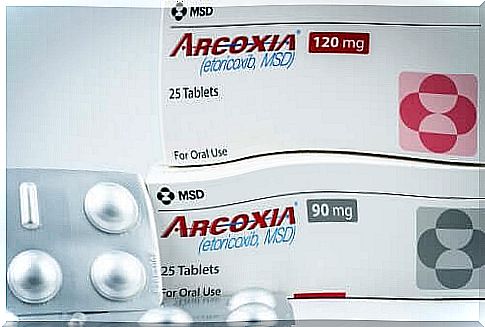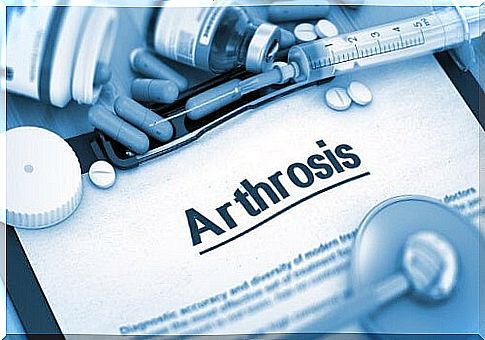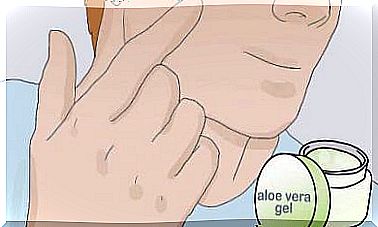Etoricoxib: Anti-inflammatory Drug

Etoricoxib belongs to a group of medicines called selective COX-2 inhibitors. It belongs to the group of NSAIDs (non-steroidal anti-inflammatory drugs) which inhibit the induced prostaglandin synthesis.
This is done by selectively inhibiting COX-2, which is responsible for its analgesic and anti-inflammatory effects. Etoricoxib is presented as tablets for oral administration.
What is Etoricoxib used for?
Etoricoxib helps reduce joint pain and inflammation. It is used to treat osteoarthritis, rheumatoid arthritis, ankylosing spondylitis, and gout. However, etoricoxib is also used for the short-term treatment of moderate pain following dental surgery.

Now let’s briefly recall what they are and what they differ in the pathologies for which etoricoxib is prescribed:
- Osteoarthritis : This is a pathology of the joints. It causes the cartilage that covers the ends of bones to break down gradually. This causes inflammation, pain, tenderness, stiffness and, consequently, disability.
- Rheumatoid arthritis : causes pain, stiffness, swelling, and a progressive loss of mobility in the affected joints. It also causes inflammation in other areas of the body.
- Ankylosing spondylitis : This is an inflammatory disease of the spine and joints.
- Gout : is a condition of sudden and recurring attacks. It is manifested by very painful inflammation as well as reddening of the joints. This is due to the deposition of mineral crystals in the joints.
How should you take Etoricoxib?
Follow your doctor’s instructions and it’s important to use the lowest dose that relieves pain. Etoricoxib can be taken with or without food, although the effect appears faster if taken without food.

Etoricoxib should not be taken longer than necessary as the risk of myocardial infarction and cerebral infarction may increase, especially with long-term treatment and especially with high doses.
There are different dosages for this medicine and, depending on your disease, you will be prescribed the correct dose. The guidelines that must be followed are as follows:
- Osteoarthritis : The recommended dose is 30 mg once a day, increased as needed to a maximum of 60 mg once a day.
- Rheumatoid arthritis : 60 mg once daily is recommended, which may be increased to a maximum of 90 mg if necessary.
- Ankylosing spondylitis : the dose is 60 mg once a day, increasing to a maximum of 90 mg.
- Gout : The recommended dose is 120 mg once a day. It should only be used in the period of acute pain. For a maximum of 8 days.
- Post-operative pain following dental surgery : The recommended dose is 90 mg once a day for a maximum of 3 days.
Note : If you forget to take a dose, take the correct dose at the usual time the next day.
What precautions should I take?
In people over 65 years of age, it is not necessary to modify the recommended doses. However, in people with liver problems, the extent of the disease should be taken into account.
If you have mild liver disease, do not take more than 60 mg a day. However, if your liver disease is moderately severe, you should not take more than 30 mg a day.
Possible side effects
Like all medicines, this medicine can cause side effects, although not everybody gets them. The frequency of possible side effects listed below is classified as follows:
- Very common : abdominal pain.
- Common : fluid retention, dizziness, headache, palpitations, arrhythmias, increased blood pressure as well as intestinal and gastric disturbances. There may also be changes in blood tests related to the liver, bruising, weakness and mouth ulcers.
- Uncommon : these include, but are not limited to, urinary tract infection, kidney problems, gastroenteritis, increased or decreased appetite, anxiety, depression, sleepiness, and heart problems.
- Rare : angioedema and anaphylactic reactions including shock. Inflammation of the liver, yellow skin and eyes, confusion, and severe skin reactions can also occur.
Stop taking the medicine immediately and see a doctor immediately if you have an allergic reaction or have symptoms such as difficulty breathing, swelling around the ankles, jaundice, and severe stomach pain.
Application
Etoricoxib was therefore not more effective than other NSAIDs in the symptomatic treatment of osteoarthritis, rheumatoid arthritis and acute gout. Its use, however, is associated with an increased risk of hypertension. Therefore, consult your doctor or pharmacist if you have any doubts.









